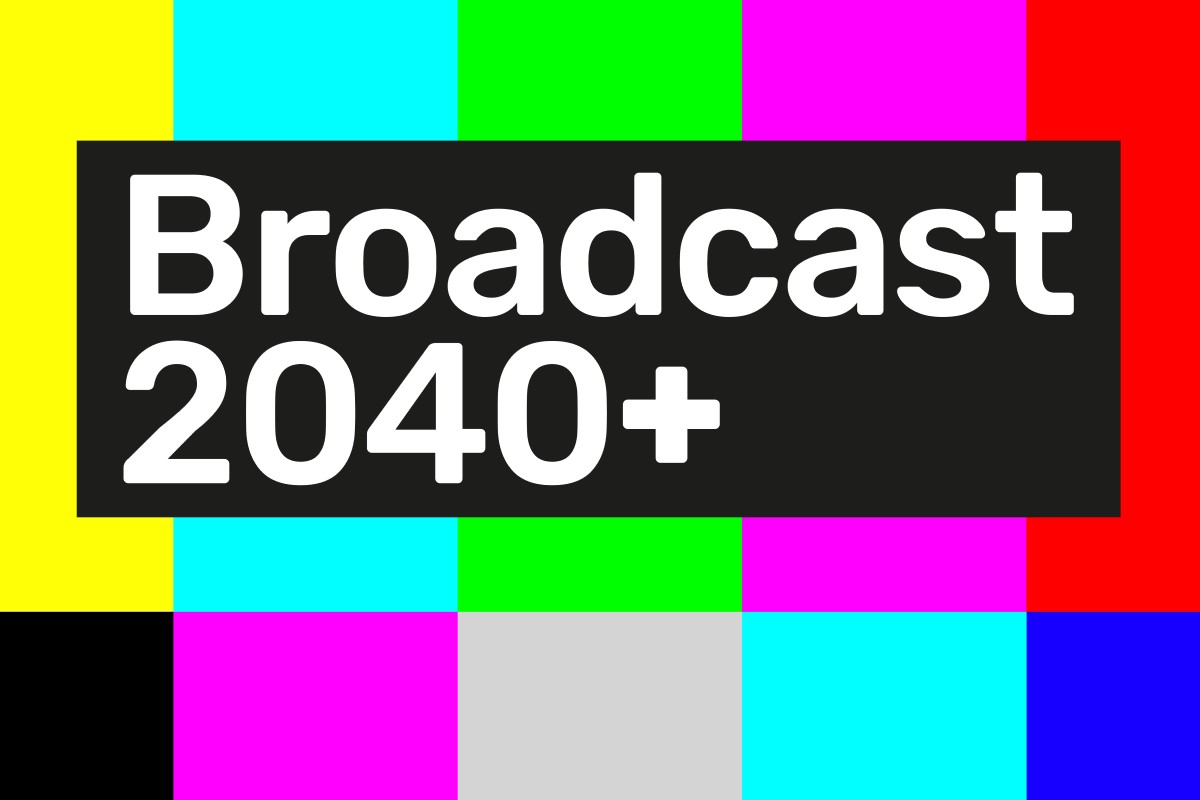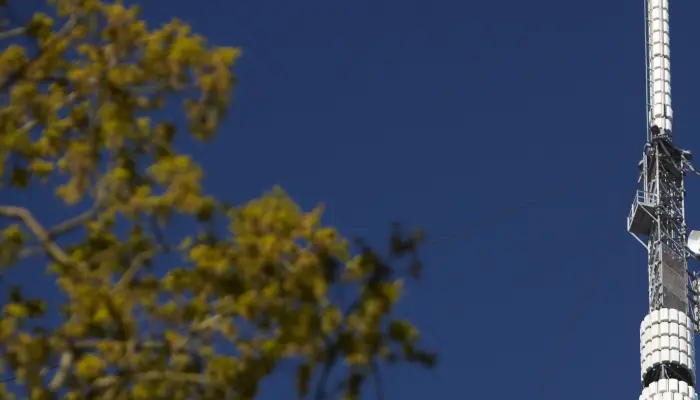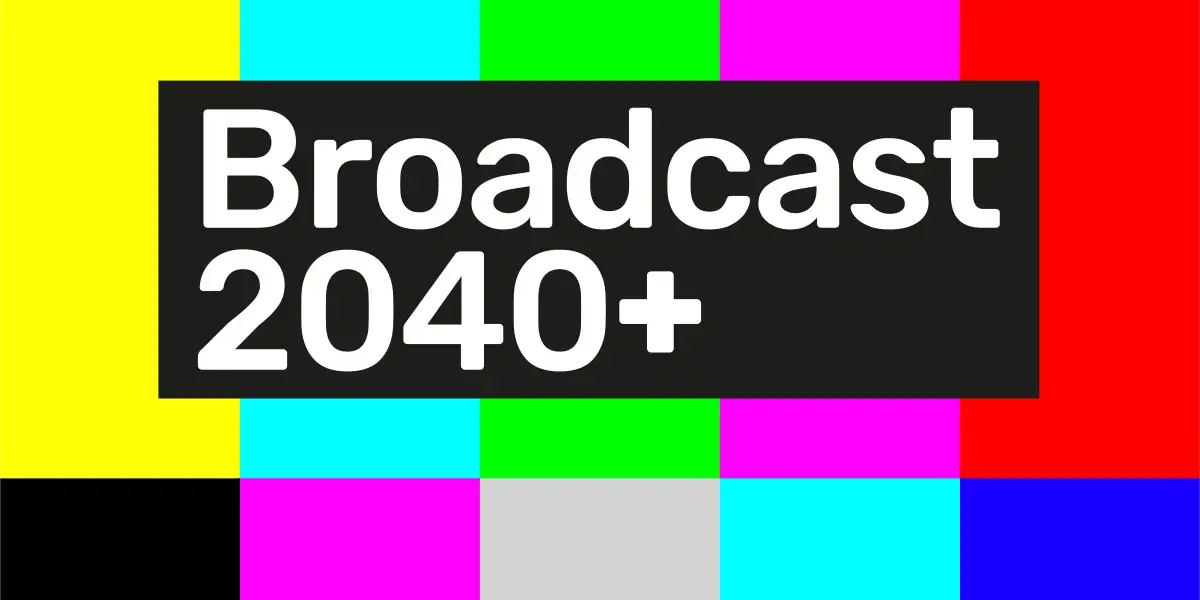New survey in key constituencies finds 75% of voters want their MP to actively support the continued provision of digital terrestrial TV (Freeview) and broadcast radio
THREE QUARTERS OF ADULTS WANT THEIR MP TO PROTECT TRADITIONAL TV AND RADIO
- As the cost of living continues to rise, 8 in 10 people value traditional TV and radio as an affordable form of entertainment for their families.
- A coalition of groups – including Silver Voices, the Children’s Media Foundation, the Rural Services Network and the Voice of the Listener and Viewer – is urging the Government to safeguard broadcast services
05 December 2022: Three quarters (75%) of people in key constituencies want their MP to protect traditional TV services, as the country faces a deepening cost of living crisis.
A new poll of over 5,000 people in the north and south of England found that 8 in 10 (78%) see digital terrestrial TV – better known as Freeview – as important, if not essential, to their daily lives. Around 8 in 10 (78%) said they depend on traditional TV as an affordable and valued form of entertainment.
More than a quarter (26%) are worried about the cost of TV subscriptions – rising to 40% of those on lower incomes. Half can’t afford subscription services or don’t think they offer value for money, and more than half (52%) said they aren’t interested in switching from Freeview to streaming apps.
Rising prices have led households to cut back on TV streaming services this year as people look for ways to save money, according to market research company Kantar.
The value for money and high-quality programming offered by traditional TV is particularly important for families. In the constituencies polled, more than 8 in 10 people (82%) said they rely on terrestrial TV as an affordable form of entertainment for their children. Two thirds said they believed watching Freeview is better for their children than streaming services or YouTube.
 Digital terrestrial TV is universally available across the UK, it doesn’t need a superfast broadcast connection, and there’s no additional monthly subscription cost.
Digital terrestrial TV is universally available across the UK, it doesn’t need a superfast broadcast connection, and there’s no additional monthly subscription cost.
The areas polled by Strand Partners and broadcast infrastructure company Arqiva cover key constituencies in the north of England, such as Darlington where Peter Gibson is MP, and in the south-west – including North Devon where Selaine Saxby is MP. The survey also captures Transport Minister Richard Holden’s North-West Durham constituency and former Tory Chairman Sir Jake Berry’s Rossendale and Darwen constituency.
More than 7 in 10 (72%) said the loss of traditional TV would have a significant negative impact on the UK. Around two thirds (65%) think it should be classed as ‘critical national infrastructure’ – essential for the day to day running of the country. When asked, 16% of those polled said they associate protecting traditional TV services with the Conservative Party, 34% associated it with Labour.
As it stands, there is only certainty of provision for TV and radio through an aerial until the early 2030s. Ofcom is currently considering what the UK’s negotiating position will be at next year’s World Radio Communication Conference (WRC23), where countries will decide whether the spectrum of radio frequencies currently used for TV broadcasting should instead be allocated to other technologies. Decisions at previous WRCs have already led to a reduction in the spectrum allocated to digital terrestrial TV, which has meant more services are now squeezed into fewer frequency bands.
If the UK is to preserve its broadcast services it will need to fight for them in negotiation with other countries, including those within the EU who are expected to vote as one bloc. To have the technical capacity to deliver these services later down the line, the Government must commit to protect them now and ensure that there is no change in the spectrum allocated to television broadcasting.
Selaine Saxby, Conservative MP for North Devon, said:
“People in my constituency rely on their terrestrial TV service.
“I see every day how essential Freeview is to families in rural areas who struggle to get good broadband, to those who cannot afford monthly streaming subscriptions, and to older people who lack confidence online.
“We must protect terrestrial TV services for the long-term, and I will be pressing that case with government.”
Peter Gibson, Conservative MP for Darlington, said:
“I am concerned about the potential lack of continued terrestrial TV and radio services for my constituents in Darlington. Before these are potentially disconnected we need a much deeper understanding as to who this is going to affect the most and how it will impact vulnerable people in our community.”
The coalition behind the Broadcast 2040+ campaign has written to Michelle Donelan, Secretary of State at the Department of Digital, Culture, Media and Sport, to urge the Government to protect traditional TV and radio services to 2040 and beyond.
The letter, from Arqiva Chief Executive Shuja Khan, is signed by a range of groups on behalf of viewers and listeners across the country, including the Children’s Media Foundation, over-60s campaign group Silver Voices, and the Rural Services Network.
In the letter, Arqiva CEO Shuja Khan said:
“Broadcast TV and radio are part of the daily routine of tens of millions of people across the UK – nine out of ten adults listen to radio at least once a week and nearly half the households in the UK regularly access television through an aerial.
“These services bind us together as a people, whether it is through national moments that matter like the Queen’s State Funeral and Jubilee or celebrating national success like the Women’s Euro Final.
“Now is a critical moment to guarantee them for the long-term. The Government is only committed to these services until the early 2030s. On questions of critical national infrastructure, that is closer than it seems.”
The Arqiva survey proves how important terrestrial TV and radio is to the well-being of older people. At a time when pensioners’ income is under so much stress from energy prices and food inflation, streaming services are a luxury few can afford.
Freeview has been a lifeline for older people during the pandemic, and now during the cost of living crisis, providing public information, entertainment and company. The Government must give an unequivocal commitment to maintaining terrestrial services up to and beyond 2040.
Dennis Reed, Director of UK-wide over-60s campaign group Silver Voices
The high value placed on digital terrestrial television services by families with children is an indicator of the continued importance of public service content to parents, which is not at all surprising to us at the Children’s Media Foundation.
In the face of the cost of the growing number of streaming services and the unreliability and insecurity of 'free surfing' on YouTube or TikTok, parents naturally want to ensure the continuation of services which offer their kids content that is regulated, relevant, rooted in their own lifestyles, and not reliant on the additional cost of subscription.
It’s clear that parents and children will miss Freeview services if they are no longer available.
Greg Childs OBE, Director of the Children’s Media Foundation
Government often states a policy that no-one should be disadvantaged by where they live. The Rural Services Network recently published a report showing that the cost of living in rural areas is higher than elsewhere whilst local earnings are less.
This reinforces the fact that the safeguarding of DTT and radio is of fundamental importance to rural areas where the population is much older than the national average and the least well served by broadband connectivity. We continue to strongly support the Broadcast 2040+ campaign.
Graham Biggs MBE, Chief Executive of The Rural Services Network
This research underlines how important it is that viewers and listeners across the UK are able to access high quality television and radio into the future. Only digital terrestrial can guarantee that.
Colin Browne, Chairman of the Voice of the Listener & Viewer, said:
Universal access to public service broadcasting is a vital element in the social glue which binds us all together as a nation. It is as important for our social well-being as the NHS is for our physical health.
Patrick Younge, Chair of British Broadcasting Challenge
Notes to Editors
Polling
5,066 representative members of the UK public (by age and gender) were surveyed by Strand Partners between 14 and 28 August 2022.
The survey was undertaken in 12 parliamentary constituencies:
- Rossendale and Darwen (Jake Berry MP)
- North-West Durham (Richard Holden MP)
- Workington (Mark Jenkinson MP)
- Sedgefield (Paul Howell MP)
- Bishop Auckland (Dehenna Davison MP)
- Darlington (Peter Gibson MP)
- Cheltenham (Alex Chalk MP)
- Winchester and Chandler’s Ford (Steve Brine MP)
- Eastbourne (Caroline Ansell MP)
- North Devon (Selaine Saxby MP)
- Taunton Deane (Rebecca Pow MP)
- North Cornwall (Scott Mann MP)
Additional data:
- Almost two-thirds (61%) of those polled watch digital terrestrial TV every day, while 8 in 10 said they listen to a radio each week.
- Those surveyed said they cared more about continued access to traditional TV and radio [5% said it was a top 5 political issue] than issues such as animal welfare [4%] and the future of the Union [3%].
Broadcast 2040+ Campaign
- The Broadcast 2040+ coalition’s letter to Secretary of State Michelle Donelan can be found here:
- For more information on the Broadcast 2040+ campaign please see: “Protect traditional TV & radio” say the British people as Broadcast 2040+ campaign launches
- Arqiva is the national infrastructure provider which operates at the heart of the UK’s broadcast industry; helping transmit Digital Terrestrial Television (Freeview) and radio into people’s homes.
- Silver Voices is an independent UK-wide campaign organisation for the over-60s, providing a platform for senior citizens to express their views on issues such as pensions, health and social care and age discrimination. Major policies are settled through votes of all members to ensure they are representative. Silver Voices has 5,000 paid up members with thousands more supporting its social media interventions.
- The Children's Media Foundation (CMF) is a not-for-profit organisation dedicated to ensuring UK children have access to the best possible media, on all platforms, at all ages. The CMF is governed by a Board of concerned individuals and its activities in various fields are undertaken by the CMF Executive who are all volunteers. CMF recognises media is a powerful force that shapes children's lives and that it can be detrimental, but also extremely valuable.
- The British Broadcasting Challenge is a group of media academics, writers and producers who are aware of the challenges facing public service broadcasting. Their aim is to promote a wide-ranging discussion about the future of UK public service broadcasting – its potential for good, its ability to transmit truth, its institutional place at the heart of the UK and how it can be improved for the digital age. It also aims to ensure that this debate is accountable to parliament and the public, that is open and transparent and not conducted behind closed doors.
- The Rural Services Network works on behalf of their members to ensure that people in rural areas have a strong voice. They support member organisations through the sharing of best practice and rural expertise and advocating on their behalf for a fair deal for rural communities to maintain their social and economic viability.
- The Voice of the Listener & Viewer works to promote high quality broadcasting which maintains the democratic and cultural traditions of the UK. They support the independence, integrity and secure funding of the BBC and the work of broadcasters and programme makers who demonstrate commitment to the principles of public service broadcasting.
- Age UK is the country's leading charity dedicated to helping everyone make the most of later life and protecting the long-term interests of future generations. The charity provides companionship, advice and support at a national and local level for older people who need it most. The Age UK network comprises around 125 local Age UKs.
- Kantar research on the impact of rising prices on streaming subscriptions: Cost of living crisis bites: UK Streaming market shrinks (kantar.com)
News

Arqiva’s Net Zero targets validated by the Science Based Targets initiative

Jade Botterill MP Visits Emley Moor

Arqiva Wins Prestigious HR Excellence Award for Health & Wellbeing Strategy
